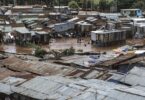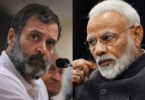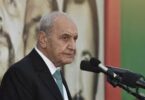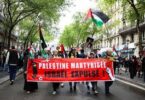ANKARA (AA): “If the price for safeguarding legitimacy is my blood, then I am prepared to sacrifice my blood for the cause of safety and legitimacy of this homeland.” These words were part of the last speech by former Egyptian President Mohamed Morsi before the army overthrew him on July 3, 2013. Morsi didn’t use these words as a slogan to serve his political agenda but sacrificed a lot in defense of the Egyptian people’s choice of him as president in free and transparent elections.
Morsi, a leading member of Egypt’s Muslim Brotherhood, won Egypt’s first free presidential election in 2012. After only a year in office, however, he was ousted and imprisoned in a bloody military coup led by then defense minister and current president Abdel Fattah el-Sisi. At the time of his death, Morsi faced a host of legal charges, which he, along with numerous human rights groups and independent observers, said were politically motivated.
Morsi was born on Aug. 8, 1951 in the village of El Adwah in northern Egypt’s Al-Sharqia Governorate. He grew up in a simple family. His father was a farmer and his mother was a housewife. He married in 1978 and has five children and three grandchildren. Morsi moved to Cairo to study Engineering at Cairo University from 1970 to 1975 and graduated with high honors before being appointed as a lecturer. He obtained his Master’s degree in metallurgical engineering in 1978.
That same year, he won a scholarship to study in the United States and received a PhD in materials science from the University of Southern California in 1982. While in the US, he became assistant professor at California State University, Northridge from 1982-1985. He also worked with NASA in the early 1980s to help develop Space Shuttle engines. In 1985, he returned to Egypt and became a professor at Zagazig University, where he was appointed head of the engineering department and served there as a lecturer until 2010.
He was later elected as a member of the Anti-Zionist Committee and was a founding member of the Egyptian Resist the Zionist Project Committee. In 2000, he was elected as a member of the Egyptian Parliament for the Muslim Brotherhood and was the head of its parliamentary bloc and its spokesman. Morsi was one of the most active members of Parliament, serving in that role from 2000-2005.
He co-founded the National Association for Change in 2004 and the Egyptian Association for Change in partnership with famed Egyptian figure Mohamed ElBaradei in 2010, which played a pivotal role in preparing for the Egyptian revolution that led to the ouster of former President Hosni Mubarak in 2011. The Mubarak regime arrested him for his role in the association before he was liberated by the Egyptian masses days before Mubarak was toppled. Morsi co-founded the Freedom and Justice Party, the political arm of the Muslim Brotherhood, as well as the Democratic Alliance, which included many parties.






